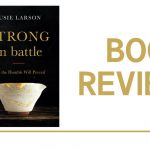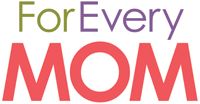
Managing Worry and Anxiety by therapist Jean Holthaus helps readers understand the psychological and spiritual aspects involved in anxiety and offers practical skills to help manage anxiety.
The first part of the book focuses on the many components that influence and cause anxiety. Holthaus defines different types of anxiety disorders and explains the difference between worry and anxiety.
I thought the author did a thorough job explaining the many factors contributing to anxiety and how to integrate a healthy treatment plan using a holistic approach.
“Looking at the biological, psychological, social, environmental, and spiritual factors is key to managing both worry and anxiety.”
While the first portion of the book was research-driven and informative I encourage readers looking for practical help to keep reading. Once I got to the middle of the book my interest piqued when the author provided applicable skills I thought were very helpful.
I loved how chapter six showed how our view of God affects anxiety. Since I’ve been researching how fearing God helps us gain the courage to fear less, I thought this chapter aligned with my own research.
“Our experiences create a framework through which we understand ourselves and the world around us. Our experiential understanding can often be different than our factual understanding. Each of us has distinct experiences that formed our understanding—both accurate and inaccurate—of who God is and how he feels about us.”

Some of the distorted concepts we create based on our experiences include:
Unpleaseable Boss God
I’m Outta Here God
Just Get Over It God
Do Not Disturb God
Maybe I Will Maybe I Won’t God
Now You’re Going to Get it, God
One aspect involved in learning to fear God is understanding who God is. And one thing I have learned and focus on in my writing is how we can experience the reality of who God is by facing our fears. That’s when we truly experience who God is in a way that reaches our hearts. But first, we must be armed with a factual and biblical understanding of who God is.
The next part of the book shows readers how to develop these three essential skills:
- Living in the Present Moment (What it means to live grounded and stay present in the current moment)
- Suspending Judgement (How to suspend judgment and work to accept ourselves)
- Believing Yourself to Be Competent and Equipped by God (Ways to see ourselves as competent to manage distressing emotions when they occur so we do not need to avoid them and can find contentment in the current moment)
I loved how the author related the Israelites fear of not having what they needed for tomorrow and hoarding food for the next day, to our present-day worries about the future:
“The same is true when we jump into the future and attempt to use the resources God has given us for today to solve problems we might believe might occur in the future; it never works successfully and always spoils the moment we are in.”
One practical skill the author shares is how to live in the present moment by giving language to what is present and accurately describing observations. She gives steps to help you slow down your brain, stop telling stories, and learn to differentiate feelings from facts.
Worry or anxiety can easily distort the meaning our brains make of the data it is taking in. Share on X

I often wrestle with making the “right” decision and I loved her encouragement in the chapter How the Suspend Judgement in order to make effective and life-giving decisions.
“Instead of fixating on making the “right” decisions, we can provoke much less anxiety by focusing on what will bring life in the situation. If something is life-giving, ti causes us to grow spiritually, emotionally, mentally, or physically toward becoming everything we were created to be. Life-giving things cause our bodies, minds, and spirits to function at full capacity in the ways they were created to function.”(p.149-150)
“Focusing on effectively bringing life means being willing to embrace the complexity of life and let go of believing we can know the “right” answer of the way things “should” be done. It also requires letting go of focusing on ourselves and making sure we are doing and saying the “right” things.”
As someone who has faced many fears in the last five years, I believe this book is a valuable asset for those suffering from anxiety. The book offers practical ways to change how we think so we can live with less worry and anxiety. This is a must-read in my opinion!
I received a free copy of this book from Revell in exchange for my honest review.










 Hello there! I'm Valerie, a mom of four and wife of 27 years. My writing inspires others to cultivate courageous faith and find solace in trusting God, especially in moments of fear and uncertainty. Join me on this adventure as we explore the beauty of trusting God when we are afraid.
Hello there! I'm Valerie, a mom of four and wife of 27 years. My writing inspires others to cultivate courageous faith and find solace in trusting God, especially in moments of fear and uncertainty. Join me on this adventure as we explore the beauty of trusting God when we are afraid. 



